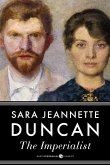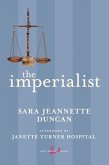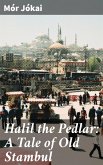In "The Imperialist," Sara Jeannette Duncan intricately weaves a narrative set against the backdrop of the British colonial experience in the early 20th century. Through her nuanced prose and keen characterizations, Duncan explores themes of identity, power, and the moral implications of imperialism. The novel skillfully navigates the complexities of colonial relationships, juxtaposing the desires of the British settlers with the cultural landscapes they seek to dominate. The blend of realism and satire reflects a literary style reminiscent of contemporaneous works, offering readers a profound commentary on the sociopolitical attitudes of its time. Sara Jeannette Duncan, a pioneering female author and journalist, was influenced by her own experiences traveling through Canada and the British Empire. Her keen observations of cultural interactions and colonial ideologies were instrumental in shaping her narrative voice. Duncan's critical perspective on imperialism draws from her extensive background in journalism, where she adeptly highlighted the nuances of societal change and female agency in her writings, making her insights particularly relevant in an era often characterized by patriarchal and colonial power structures. I highly recommend "The Imperialist" for readers interested in a thoughtful examination of colonialism through a distinctly woman'Äôs lens. Duncan'Äôs narrative not only challenges prevailing notions of imperial benevolence but also invites readers to reflect on the lasting impacts of colonial histories. This book is a vital addition to any literary collection focused on post-colonial studies or women'Äôs literature.
Dieser Download kann aus rechtlichen Gründen nur mit Rechnungsadresse in A, B, BG, CY, CZ, D, DK, EW, E, FIN, F, GR, H, IRL, I, LT, L, LR, M, NL, PL, P, R, S, SLO, SK ausgeliefert werden.









